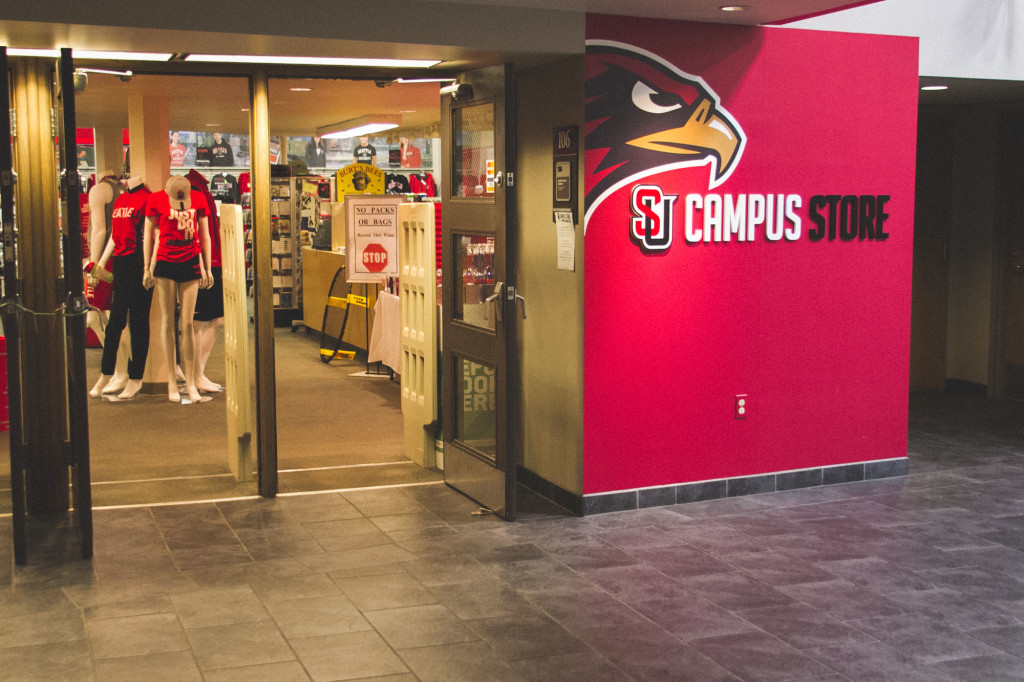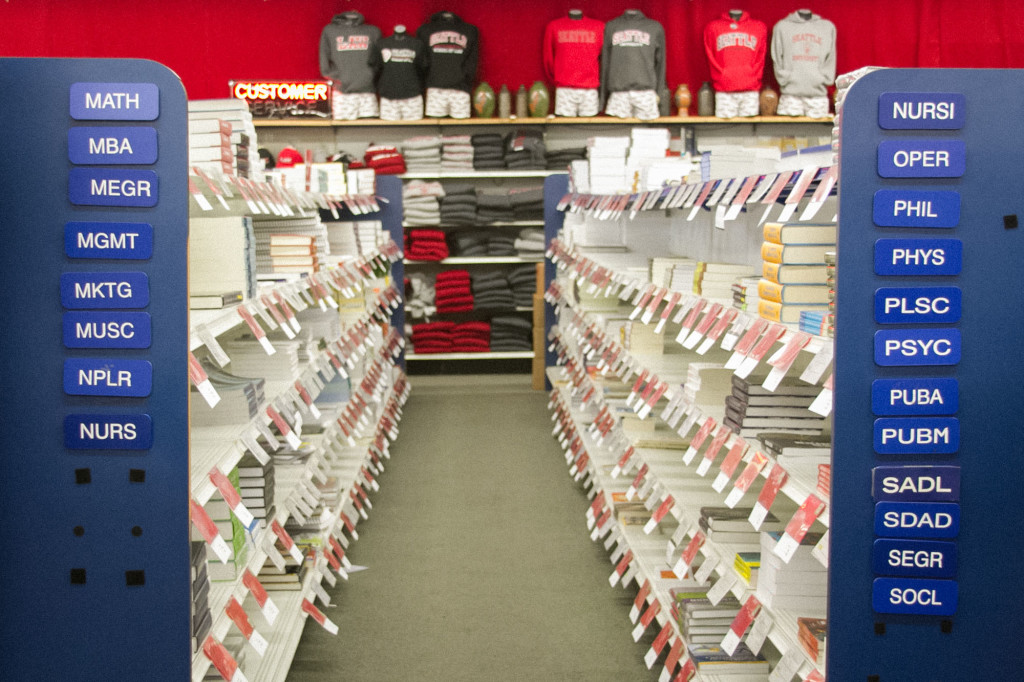Whether you’re buying textbooks for a new quarter, adding to your Redhawk sweatshirt collection or just grabbing a snack between classes, the Seattle University Campus Bookstore is the place to go. This summer, the store will undergo a transition that will mean lower prices and a wider selection of books—but it could also present some challenging new adjustments for
the staff.
Beginning June 1, the store will be owned by Follett Corporation, a company that provides a variety of educational products—including textbooks and class supplies—to schools, colleges and public libraries across the country. It’s one of the biggest players in the business and serves hundreds of
universities nationwide.
Managers of Seattle U’s bookstore have been in talks with Follett for a few months now, and have toured stores at several other schools with which the company partners. Manager Marc Parrish, who has worked full-time at the Seattle U store for the past five years, said he is excited about the changes the merger will bring.
“There are just a lot of benefits to having a third-party operator,” Parrish said. “Just because of the economies of scale they have, the buying power and the technology, working with them is going to really improve the ways we serve the campus.”
One of the greatest benefits, Parrish said, will be a more consistent availability of textbooks.

Renovation of Seattle University’s Campus Store is planned to take place during winter break.
“There are going to be a lot of changes that are very beneficial to getting course materials at the lowest prices and within the quickest timeline,” he said. “The rental program is really going to grow.”
As of now, when a student requests a textbook that is out of stock, the store has to put in a special order for another copy, which often takes time to come in. And when all the used copies of a book are sold out, some students are forced to buy new copies for much higher prices. When Follett is operating the store, other schools the company is in partnership with— the closest being Gonzaga University—will be able to ship their available books to Seattle U when needed. On top of that, Follett offers a large collection of digital books for sale or rent, and rental prices are promised to be much lower than they are now.
Freshman Addie Nelson, who has worked as a sales associate at the store since winter quarter, said she doesn’t see the changes as entirely necessary but thinks they are for the better.
“I think it’s [hard] because a lot of things are changing,” Nelson said. “And it might break up the dynamics of the staff a bit.”
Some of the benefits student employees receive now will be less generous after the transition. Currently, they have a 50 percent discount off of everything in the store but textbooks; this will be reduced to 35 percent in June.
“Obviously it’s a bummer,” Nelson said. “But I think it’s really nice for employees to have that [a discount], because it encourages us to buy a lot from the store.”
Though details of a store renovation have not yet been discussed, Follett has made a commitment to making physical improvements in the future.
“I’m excited, and we definitely need the new stuff,” said Scott Johnson, a student employee who has worked at the campus store for almost a year. “I’m curious to see how things go with new student employees, because it’s going to be a corporate management system, but all of our managers are still going to have their same positions.”
Beginning fall quarter, Seattle U students can expect to pay a lot less when they come into the campus store. Parrish said he sees the merger as a great opportunity for the school.
“Working with a third party, you have to be very careful that that third party has a mission and a vision that’s in sync with what the university wants to do, and Follett is fully committed to that,” Parrish said.








